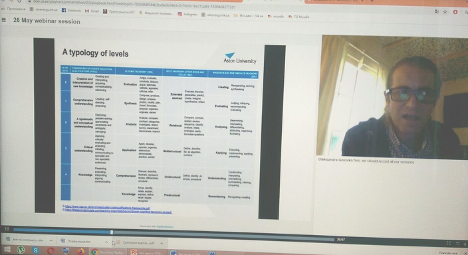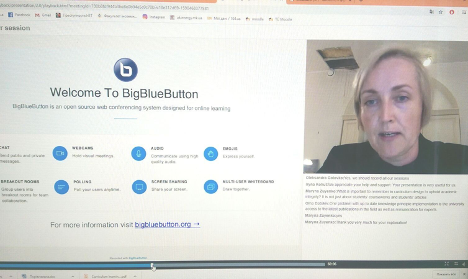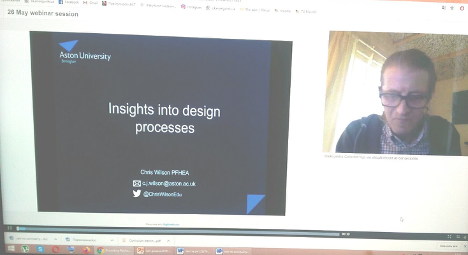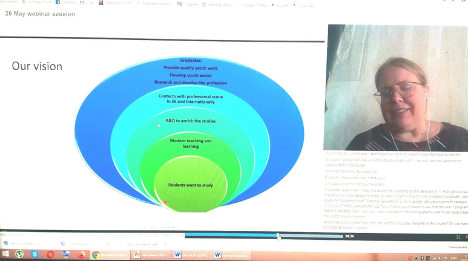Potential Directions to Curriculum Development
As our students would say we have “passed the equator” in our learning sessions of Curriculum development seminar – we’ve already had three of the planned five ones. We feel like students again – lectures (webinars), seminars (discussions), individual work (reading articles preparing for the “lesson”), doing homework, making efforts to meet the deadline and then awaiting evaluation (constructive, helpful feedback) and satisfaction from being praised.
Three weeks of hard work. But we are the most diligent, the most motivated “students” ready to analyze, match and enhance the curricula, to implement our European partners` best practices at our universities to make them closer to meet European standards. Our task is intellectually challenging and not a simple one as we have to find the way to apply the general European principles to Ukrainian context.
But we have the best “teachers”, who show real commitment and dedication. During these three weeks we’ve had the opportunity not just to see but to feel their desire to share with us their experience in Curriculum development.
We highly appreciate the moderators of the seminar: Christopher Wilson, Dr. Elisabeth Wielander, Dr.Sue Garton (Aston University, Birmingham, UK), Dr. Kristina Kallas, Anne Kivimäe (Tartu University Narva College), Prof. Dr. Hans-Werner Huneke (Heidelberg University of Education), who introduced us to the general principles of curriculum design in their universities, gave real-life examples from foreign language teaching curricula, presented their good practices on the curriculum development process, explained how curriculum is designed, who should be involved in its enhancement, how the feedback can be integrated into the development process, described different stages of curriculum development. Our European partners also presented their approaches and methods to quality management and quality assurance, introduced quality monitoring procedures, suggested institutions and experts from different fields that can be in curriculum quality assurance based on their own experience. They underlined the necessity for student involvement in curriculum improvement through student feedback.
We also want to express our gratitude to Kateryna Suprun, a representative of Ukrainian Ministry of Education, and Zhanna Talanova (Erasmus Ukraine Office) who raised the issue of the relevance and applicability of the general principles to Ukrainian and each university context, which is the most challenging one and needs careful reflection.
We are grateful for the interesting, informative, elaborated, well organized seminar and are looking forward to the next learning sessions.
Viktoria Barkasi and Curriculum Development MNU Team






